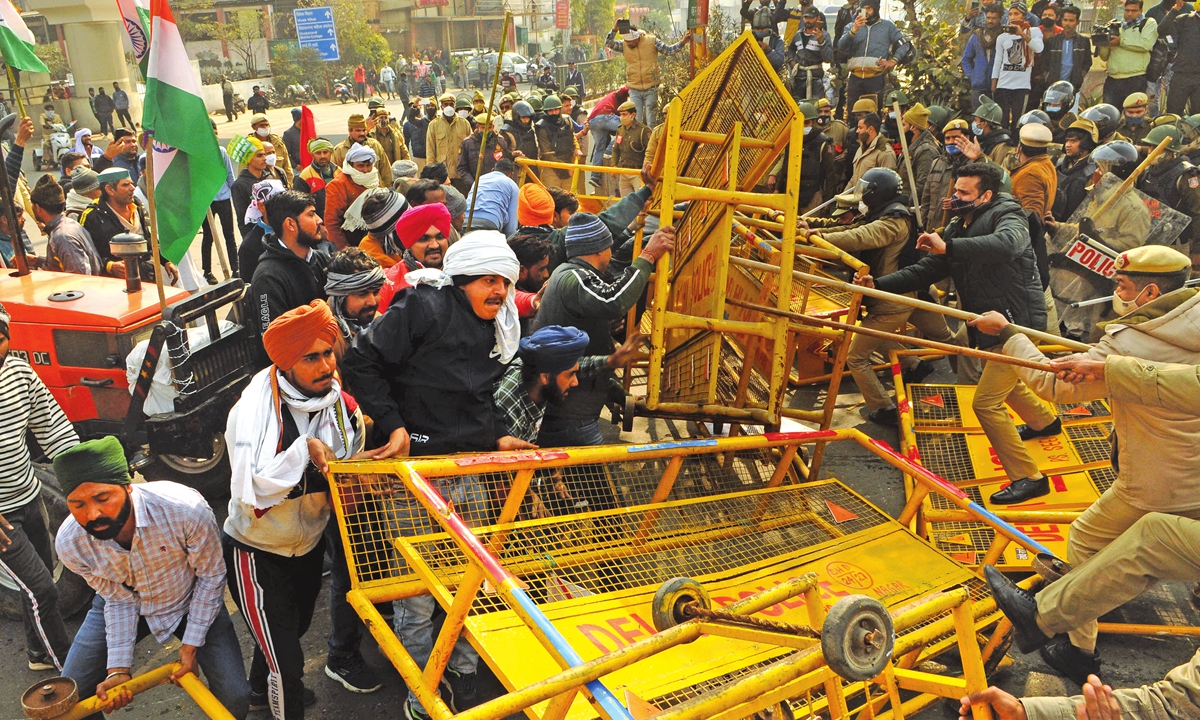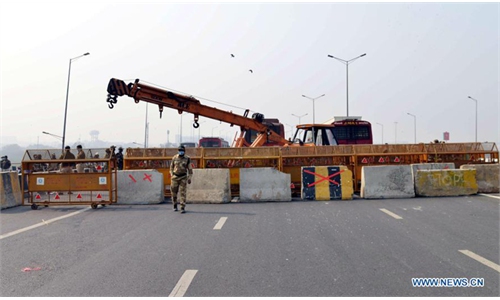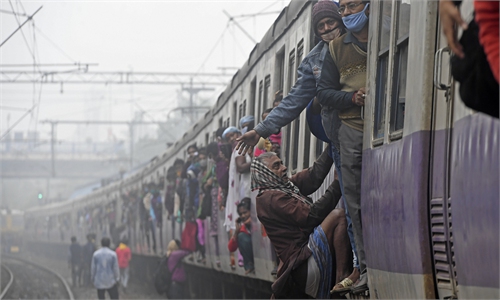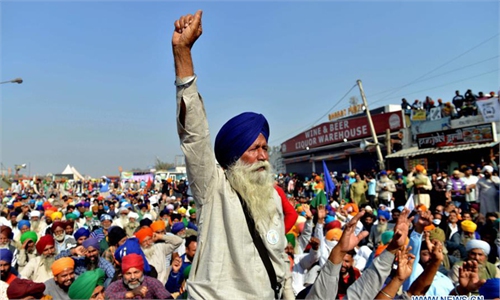
Indian farmers attempt to break through a barricade during India's Republic Day celebrations in New Delhi on Tuesday. As the nation celebrated, thousands of farmers drove a convoy of tractors into the Indian capital amid ongoing agricultural protests that have grown into a rebellion and rattled the government. Photo: AFP
At the Delhi Republic Day parade on Tuesday, thousands of Indian farmers protesting the country's agricultural reforms stormed Red Fort in New Delhi. At least one protester died. The protest is believed to be one of the largest in India in recent years, as well as one of the most serious crises the Modi administration has to face.Indian farmers converged on the capital as early as November 2020 demanding that the new agricultural laws be repealed. The Indian government and farm leaders have held more than 10 meetings and the Modi administration has offered to delay the implementation of the new laws by 18 months. This shows that the farmers' protest, supported by Indian landlords, has already had some effect. Agricultural reform has always been regarded as the difficult part of India's economic reform. The Modi administration's economic reform has now encountered a major test.
"The root cause of India's farmer protests is the conflict over land. Modi's original intention was to make farmers benefit more from the market, but as the reform involves large commercial groups, and it has become a struggle of interests between the landlords and conglomerates," Liu Zongyi, secretary-general of the Research Center for China-South Asia Cooperation at the Shanghai Institutes for International Studies, told the Global Times on Wednesday.
In recent years, India has been advancing its major power pursuit. However, during this year's Delhi Republic Day parade, as India was displaying its military might to the outside world, Indian farmers were storming New Delhi's Red Fort. The contrast was drastic and ironic.
According to China's experience, agricultural reform is indispensable in order to embark on the road to industrialization. Over these years, China has successfully transformed a backward agricultural state into an industrialized country. China has created a large number of employment opportunities in the industrial sector.
"However, India is not able to create such opportunities now. There have already been many redundant workers in India, and most of them are poorly educated. If India can create enough employment opportunities in the industrial sector, the country will be able to promote economic development. But India still lacks such an ability," Liu said.
The Modi administration is now facing numerous challenges. On the one hand, India needs to deal with various domestic problems, including farmer protests and the COVID-19 infections; on the other hand, the country is confronting China on border issues and also has many disputes with other neighboring countries.
While India's internal problems have not been solved, trying to coordinate with the US to suppress China will not help India's development at all. On the contrary, New Delhi will plunge itself deeper and deeper into the quagmire.
The Modi administration has not understood these questions properly: Can India create manufacturing and development opportunities by confronting China? New Delhi proudly regards itself as a key member in the Indian Ocean with an important geopolitical role. However, a country's development depends on national strength, not geopolitical and ideological games.
India does not really take farmers' interests seriously. Although China has relatively advanced industries, the country still attaches great importance to agricultural issues. The No.1 central government document released at the very beginning of each year has featured agriculture, rural areas and farmers' issues as the country's top priorities for 17 consecutive years since the 21st century. "Compared to China, what the Indian government lacks the most is to truly consider farmers' interests. The Indian government does not really serve the interests of farmers. Instead, it serves only interest groups and the landlords," Liu said.
India wants to realize its major power dream, but it is now walking on an illusory path. If the farmers are living a hard life but the country is showing off its military muscle, initiating disputes abroad and not focusing on improving people's livelihood, India will only drift farther and farther away from its dream of becoming a major world power.



